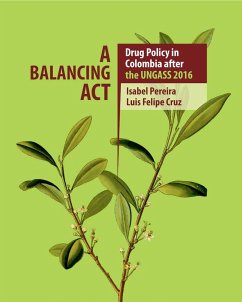This document is the result of a project developed by Dejusticia in cooperation with the Ministry of Justice and Law of Colombia and the British Embassy in Colombia, with funds from the United Kingdom through its embassy in Colombia. During 2016, two historic events were held to reflect about drug strategies in Colombia: the United Nations Special Session on the World Drug Problem (UNGASS 2016) and the signing of the Peace Agreement between the Government and the FARC-EP, which includes the agreement on the "Solution to the problem of illicit drugs". In light of the commitments made by the Colombian State, there are challenges and possibilities for drug policy reform, particularly when hoping to achieve a better balance between a criminalization perspective and the recognition and guarantee of rights to populations affected by prohibition's harmful effects. This balancing exercise calls for incorporating the lens of the 2030 Sustainable Development Agenda and its Objectives, as well as for integrating the sectors of defense, rural and agrarian development, protection and sustainable use of environmental resources, health and education, together with the efforts of peacebuilding in the territories most affected by war and drug trafficking. To achieve the goals proposed in these documents, the role of the international community in the coming years will be fundamental. The United Kingdom Embassy, concerned to broaden its horizons of cooperation, offers to share lessons learned and experiences hoping to improve institutional capacities to meet the challenges of organized crime, rural development, and the prevention and treatment of drug use. Thus, this document presents recommendations for cooperation between these two governments in the light of agreed obligations as well as opportunities to harmonize drug policy and peacebuilding.
Dieser Download kann aus rechtlichen Gründen nur mit Rechnungsadresse in A, B, BG, CY, CZ, D, DK, EW, E, FIN, F, GR, H, IRL, I, LT, L, LR, M, NL, PL, P, R, S, SLO, SK ausgeliefert werden.


